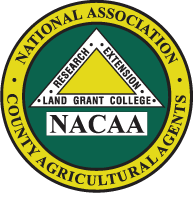Learning Module/Notebook
Gary L. Hawkins
State Specialist
University of Georgia
State Staff
1 State Specialist, University of Georgia, Watkinsville, GA, 30677
Irrigation is used in many situations as a supplement to natural rainfall to aid in the production of crops, grasses, flowers, and other plants. Many small scale farmers, those typically with 20 acres or less, use impact sprinklers or solid set irrigation systems for production of crops. Most of these small farms produce vegetable crops for local markets. In these situations, drip irrigation could be beneficial for the farmer from many different aspects including reduced water usage, disease management, and erosion reduction to name a few. The learning module/handbook presented is a culmination of the nine (9) presentations delivered as part of a Water Resource Management/Irrigation Workshop. The workshop consisted of presentations that generally followed the NRCS Standard Practice 449, Irrigation Water Management. The purpose of the workshop was to provide farmers a means to better understand the different parts needed to complete a 449 Water Management Plan to receive funding from NRCS to install an irrigation system. The workshop generally followed the components of the Irrigation Water Management Plan and included:
- How to identify your farm on a map and what a map for the plan would look like
- Learning your land to know where the best place for irrigation would be and how to manage water
- Where is the water coming from and how to move the water
- Sprinkler types and the other components of the irrigation system
- How to design a crop rotation
- How to calculate application rates
- How to put prats together to build a system (parts supplied in a bucket)
- How to operate and maintain the system
- How to use chemication if desired
- An outside demonstration of how different systems work
The course was taught by the UGA Water Resource Management Specialist and incorporated many different ways of engaging the audience. The workshop was delivered 7 times across the state of Georgia with a total attendance of 111 persons. Survey results of the workshop from 68 of the attendees indicated an overall ranking of 4.6 out of 5 with high being the best.
